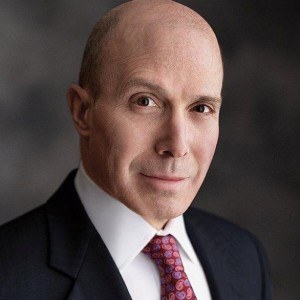


To carriers seeking to modernize and digitize, Chubb CEO Evan Greenberg has this to say: It’s all about scale.
Greenberg, speaking during the company’s 2018 second quarter earnings call on July 26, addressed the issue after an analyst questioned whether outsourcing technology upgrades might be better than investing into building tech large-scale capabilities internally.
“If you don’t have scale, sure you can have a strategy and thrive, whether analog or digital. But you get to a certain size and I will tell you what, scale matters,” Greenberg said.
His perspective amounted to the idea that internal technology scale helps address the many moving pieces involved in getting technology to improve operations both internally or externally. What’s more, he reminded listeners, technology costs money, whether outsourced or built up from the inside.
“Whether you build the technology or you buy it, … you’re not buying something ready-made out of a box. You’re buying different components of technology and making them work,” Greenberg said. “Whether you build it, or buy it, it costs money.”
Interlocked Questions
He also explained the thought process behind a company of Chubb’s scale in terms of what goes behind technology planning. In essence, he said, it involves a series of interlocked questions.
“How much do you have you can afford to spend, and by the way, on what scale can you do it? Across how many geographies, how many customer areas and product areas can you do it?” Greenberg said. He added that “your ability to acquire data and put in place tools that can help you gain insight into that data” also comes into play.
Greenberg said that Chubb spends about $1 billion annually on information technology, with “a large portion” focused on “new development, in terms of legacy technology, in terms of infrastructure, cloud enabled [technology], and [mobile] access and processing.” Annual IT spending also focuses on new digital front-end capabilities including marketing, sales and analytics, he said.
Greenberg added that the common thread of that investment Chubb makes focuses on connecting platforms both internally and with customers, in Asia, Latin America and the U.S.
“We’ve been working at it for a number of years, and it is all part of digitizing this organization so that it thrives in the digital age. Period,” Greenberg said. “Just like anything has to thrive in the digital age, if you remain analog. You are history.”
Greenberg noted a number of digital advances the company has made in recent months, including a new mobile app, a driver behavior tracking feature and digital marketing efforts targeting underserved personal lines customers.
Another of its digital platforms, the Chubb Small Commercial Marketplace, makes it easy for independent agents to place and service small business insurance.
He said that all of this is being realized more easily now because of the global scale and reach that Chubb has.
Tariffs, Too
Greenberg was also asked about tariffs (spearheaded by President Donald Trump and countered by China, Canada and the European Union, among others) and whether he sees them contributing to inflation.
He pointed out that many companies so far are saying they are not seeing a financial impact from tariffs, but noted that many goods are purchased and contracts signed months in advance.
With that in mind, a tariff, “to find its way into the stream of commerce in a meaningful way, takes time,” Greenberg said.
He cautioned that observers should make a distinction between “what is the actual dollar amount of tariffs today, versus what is being talked about.
“Relative to the size of the economy and relative to the size of exports and imports, it’s not a large percentage,” Greenberg explained. “It is mostly on goods, so the inflation impact if it is going to occur, should be relatively modest.”
That impact will take place over time, if it all, Greenberg said, so observers should continue to watch closely for now.
“The tariffs aren’t for the purpose of simply [applying] tariffs for their own sake,” Greenberg said. “They are part of a strategy to achieve what the president would say is more fair and balanced trade. We will see what kind of outcome that leads to.”
*Some material from a related Insurance Journal piece is included in this story.